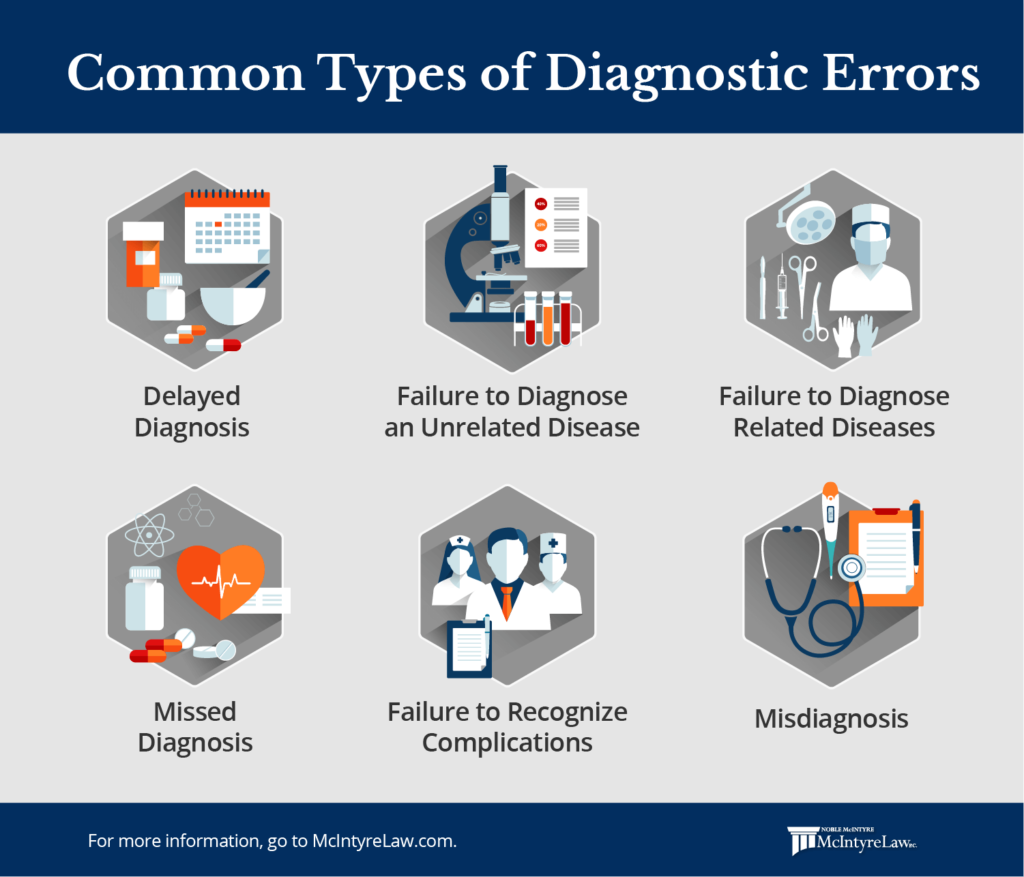

There are many taxonomies for classifying medical errors.

There are many types of medical error, from minor to major, and causality is often poorly determined. The deaths that result from infections caught as a result of treatment providers improperly executing an appropriate method of care by not complying with known safety standards for hand hygiene are difficult to regard as innocent accidents or mistakes. For instance, studies of hand hygiene compliance of physicians in an ICU show that compliance varied from 19% to 85%. It has been said that the definition should be the subject of more debate. Whether the label is a medical error or human error, one definition used in medicine says that it occurs when a healthcare provider chooses an inappropriate method of care, improperly executes an appropriate method of care, or reads the wrong CT scan. Medical errors are often described as human errors in healthcare. The word error in medicine is used as a label for nearly all of the clinical incidents that harm patients. 5.3.7 By potential for harm to the patient.5.3.6 Use of rationalization to cover up medical errors.5.2 Placing the practice of medicine in perspective.5.1 Recognizing that mistakes are not isolated events.4.2 Misdiagnosis of psychological disorders.3.3 Competency, education, and training.2.1 Difficulties in measuring frequency of errors.In line with the high importance of the research area, a 2019 study identified 12,415 scientific publications related to medical errors, and outlined as frequently researched and impactful themes errors related to drugs/medications, applications related to medicinal information technology, errors related to critical/intensive care units, to children, and mental conditions associated with medical errors (e.g., burnout, depression). alone at 251,454 deaths, which suggests that the 2013 global estimation may not be accurate. However, a 2016 study of the number of deaths that were a result of medical error in the U.S. Globally, it is estimated that 142,000 people died in 2013 from adverse effects of medical treatment this is an increase from 94,000 in 1990. This might include an inaccurate or incomplete diagnosis or treatment of a disease, injury, syndrome, behavior, infection, or other ailment. ( December 2010) ( Learn how and when to remove this template message)Ī medical error is a preventable adverse effect of care (" iatrogenesis"), whether or not it is evident or harmful to the patient. You may improve this article, discuss the issue on the talk page, or create a new article, as appropriate.

The examples and perspective in this article deal primarily with the United States and do not represent a worldwide view of the subject.


 0 kommentar(er)
0 kommentar(er)
